
Alison Pearce Stevens is a former duck wrangler, beekeeper and forever science geek who specializes in writing about science and nature for kids. She lives in the Midwest with her husband, their two kids and a small menagerie of cuddly (and not-so cuddly) critters. She writes for Science News Explores, Highlights, ASK (Arts and Sciences for Kids) magazine and National Geographic Kids' Books. Her next book, Rhinos in Nebraska, comes out in 2021. She is also an avid gardener who can often be found in her yard, checking out the critters that call it home.

All Stories by Alison Pearce Stevens
-
 Health & Medicine
Health & MedicineStress for success
Stress and anxiety can lead to serious mental and behavioral problems. Identifying stressors can help people cope with anxiety. Even better, viewing stress as a strength can tone down anxious feelings and boost productivity.
-
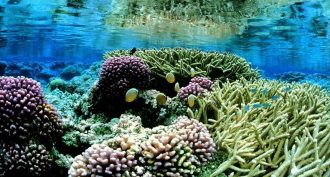 Environment
EnvironmentCorals dine on microplastics
Plastic in the ocean is a growing problem. New research finds that corals may eat tiny bits of plastic, prompting new concerns about the health of living reefs.
-
 Brain
BrainA new ‘spin’ on concussions
Scientists have suspected that rotational forces in the brain may underlie concussions. A new study used athletic mouthguards containing sensors. Data on head movements during collisions suggest that a twisting of the brain may underlie mild brain injuries, including concussion.
-
 Brain
BrainHarry Potter reveals secrets of the brain
Figuring out how the brain makes sense of what we read isn’t easy. So scientists enlisted the magical world of Harry Potter. It allowed experts to predict with great accuracy which brain areas would be active in a given part of the story.
-
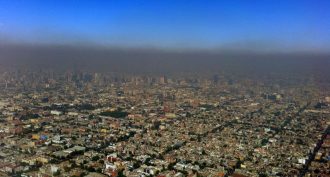 Environment
EnvironmentNano air pollutants strike a blow to the brain
Most people think that air pollution poses the biggest risk to our lungs. In fact, pollution hits the brain too, sometimes by traveling a direct route — through our noses. These tiny pollutants can harm IQ and more.
-
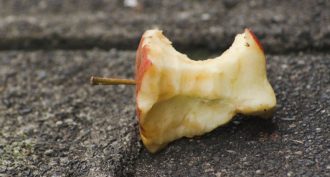 Animals
AnimalsTiny — but mighty — food-cleanup crews
Discarded food wastes can turn city spaces into food courts for disease-carrying rats and pigeons. But a new study shows tiny cleanup crews — especially pavement ants — are doing their best to eliminate such wastes. This, in turn, makes cities less attractive to bigger pests.
-
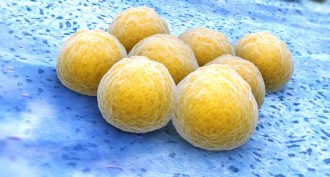 Microbes
MicrobesGerms help each other fend off antibiotics
Drug-resistant bacteria can cause persistent infections. A new study finds these germs fight drugs in different ways. And they can swap various compounds, increasing their neighbors’ chances of overcoming the drugs meant to kill them.
-
 Earth
EarthHow people have been shaping the Earth
We are the dominant force of change on Earth. Some experts propose naming our current time period the ‘Anthropocene’ to reflect our impact.
-
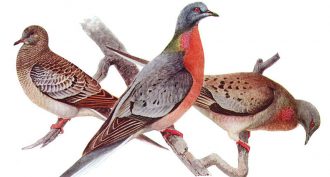 Animals
AnimalsComing: The sixth mass extinction?
Species are dying off at such a rapid rate — faster than at any other time in human existence — that many resources on which we depend may disappear.
-
 Brain
BrainThe distracted teenage brain
Teens often show poor judgment in decision-making. Scientists have long blamed this on the fact that their brains are still developing. A new study offers another explanation: distractions form rewarding behaviors — ones that persist even after the reward itself has disappeared.
-
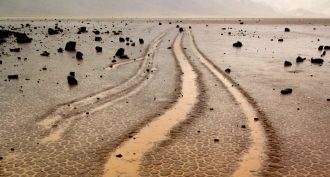 Earth
EarthSolved: Mystery of the ‘sailing’ rocks
Rocks and boulders periodically move across the Racetrack Playa in Death Valley, leaving tell-tale tracks in their wake. Using advanced technology, scientists have finally solved the mystery of how this happens.
-
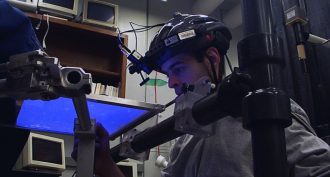 Brain
BrainMistakes: A key to learning
This man uses a robotic arm to move a cursor across a computer screen. The screen blocks his view of his hand and arm. This focuses his attention on any errors he makes as he tries to move a cursor to a target location.